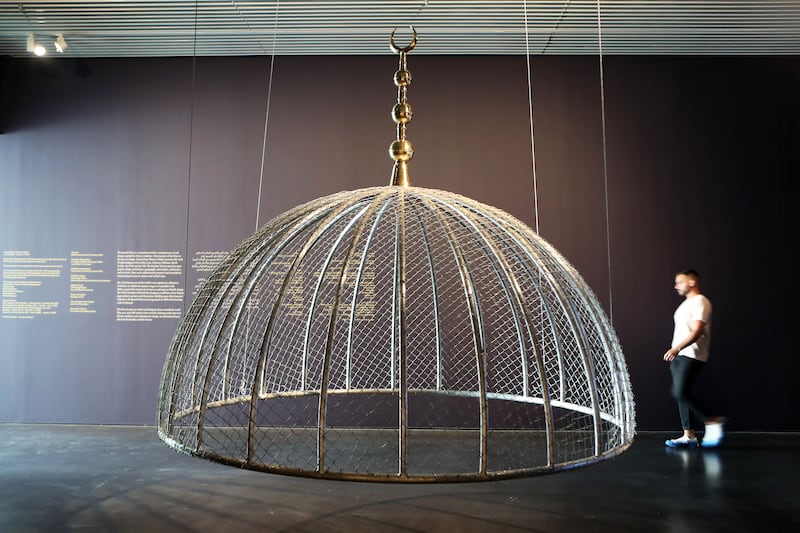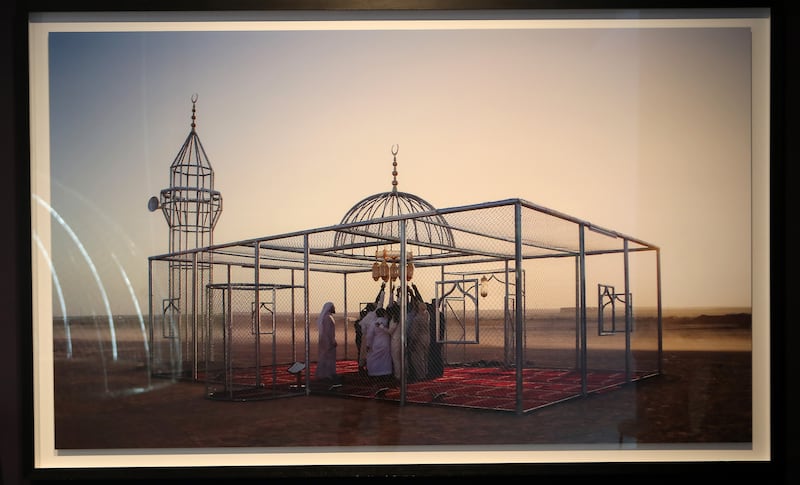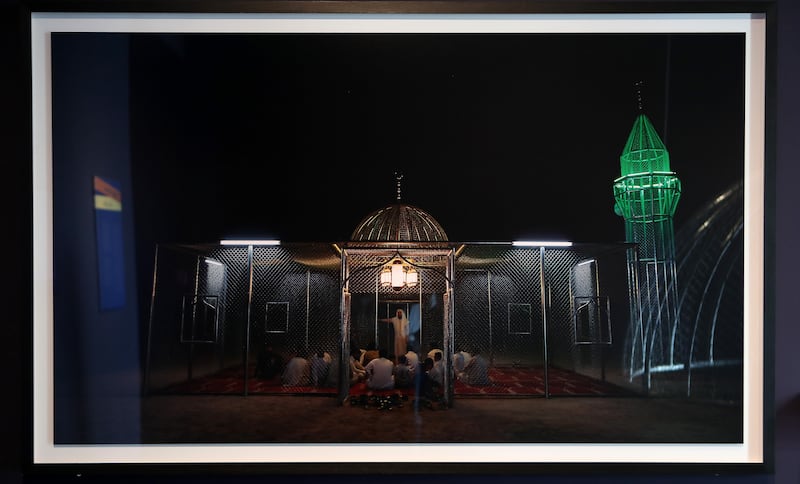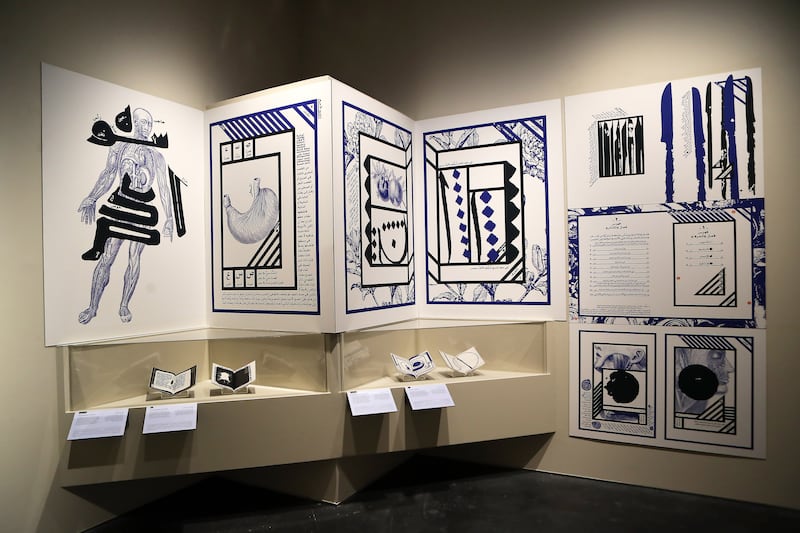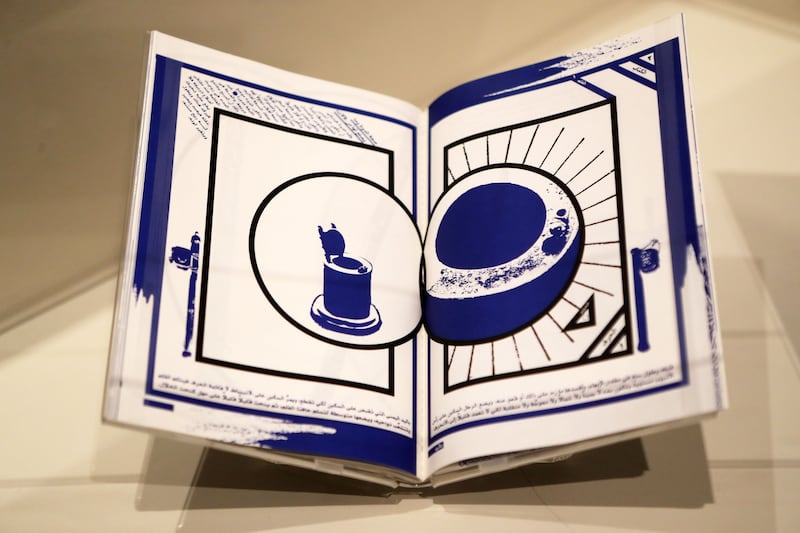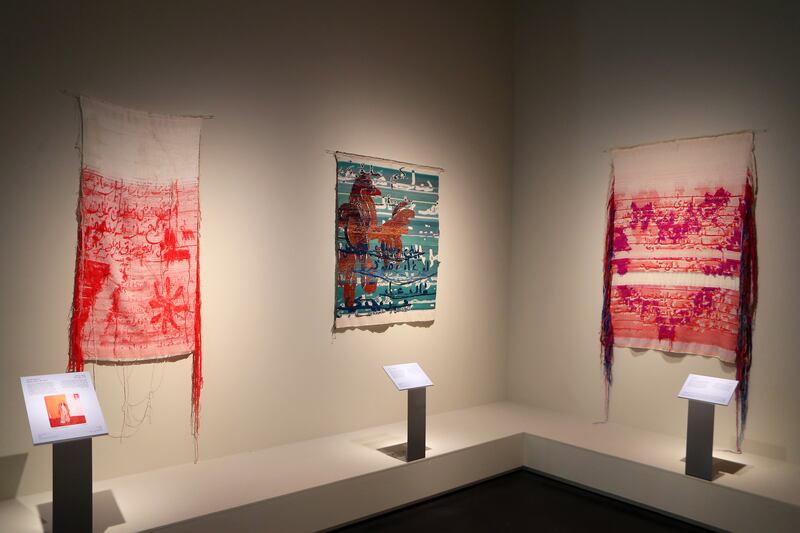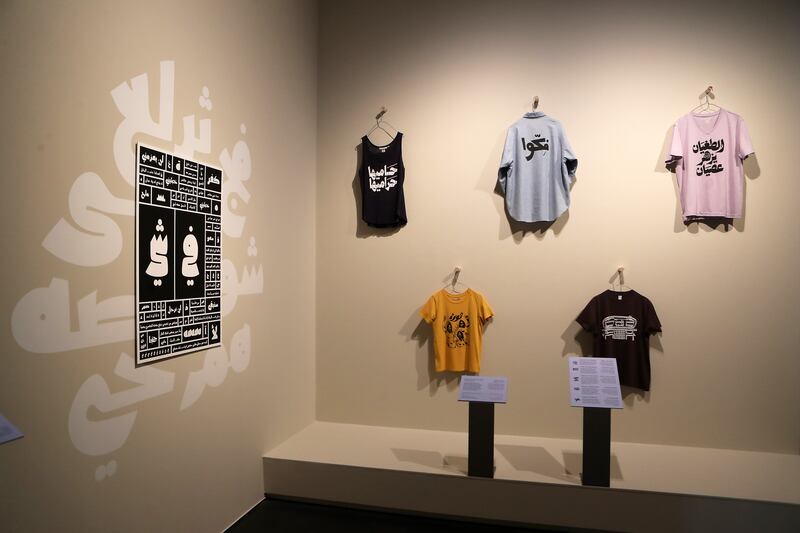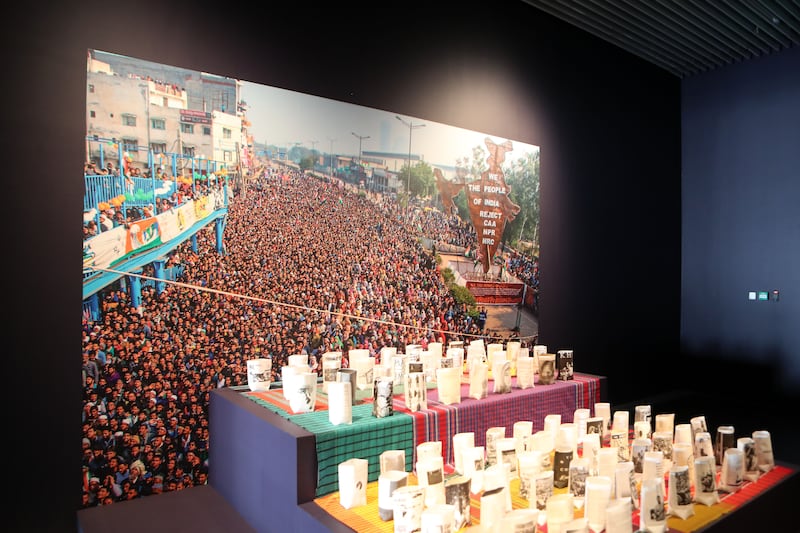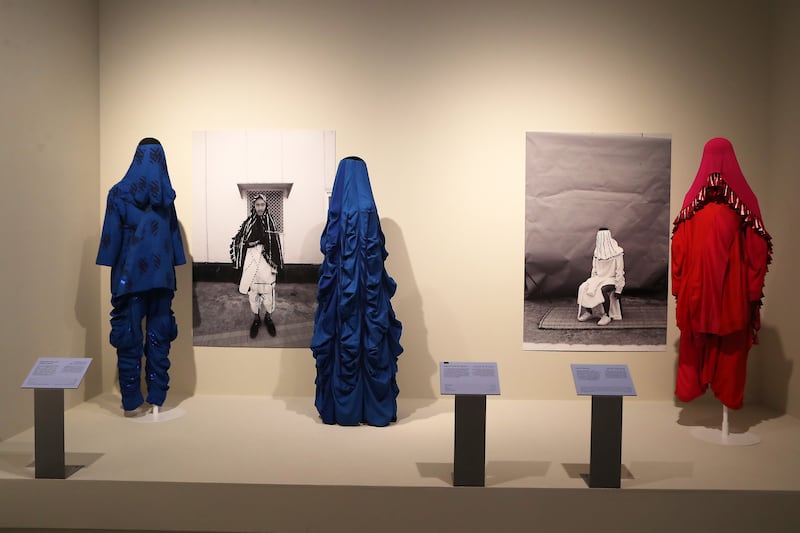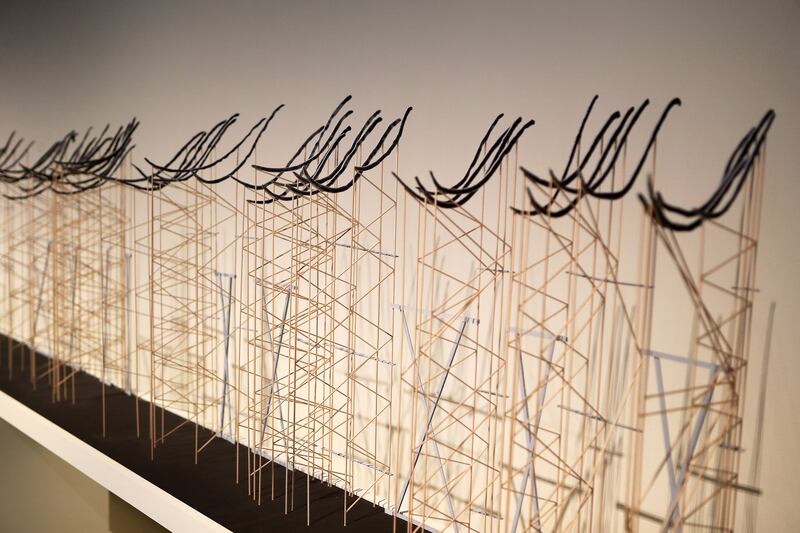Saudi artist Ajlan Gharem's award-winning work Paradise has Many Gates is soothing yet unsettling.
A version of the installation is currently on display at Dubai's Jameel Arts Centre – part of an exhibition entitled Jameel Prize: Poetry to Politics, which presents the works of eight artists from India, Iran, Lebanon, Pakistan, Saudi Arabia, the UAE and UK.
The artists and their works were finalists in The Jameel Prize in 2021, a triennial award founded by the Victoria and Albert Museum in partnership with Art Jameel for contemporary art and design inspired by Islamic tradition.
It was Gharem’s architectural installation that was selected as the winner of the prize and it’s not difficult to see why.
Industrial steel and chicken wire are constructed in the shape of a functional mosque. It’s an unforgiving material ruthlessly associated with the least desirable facets of urban life – keeping people out, or caging them in.
However, Gharem, a mathematics teacher in Riyadh, designed the 10 x 6.5-metre work in the traditional aesthetic of a mosque. It has a separate minaret and a dome on the main structure – both of which include a finial (a decorative architectural feature often adorned with a crescent moon) – as well as ogee-arched windows and door.
Only the dome is on display at the Jameel Art Centre, along with photographs of the full installation, a day shot and a night shot which transforms the mosque into a bejewelled structure, along with a video depicting the original work in the desert.
It’s a stunning piece. However, the industrial choice of material – chain link and steel pipes – is a far cry from the ornate decorative elements of traditional Islamic architecture, making Gharem’s mosque a sombre caricature of a space for community gatherings and worship.
Walking around the dome, the viewer observes that the structure as a whole would feel both fragile and open ended.
This is compounded by the fact that Paradise has Many Gates, a title which references the eight gates to heaven described in the Quran, was originally constructed in the Saudi Arabian desert where it stood framing the landscape. The mosque there could be destroyed by the elements but exists, conceptually, as a place of refuge, in spite of the associations the materials provide.
Paradise has Many Gates also cleverly references ideas such as demystifying Islamic prayer for non-Muslims and the use of border fences, refugee detention centres and illegal immigration – all major talking points in Western political and social commentary.
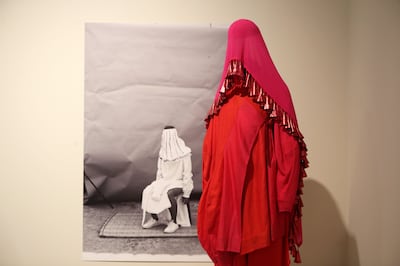
Across the exhibition, other artists use a variety of mediums to fuse Islamic tradition and concepts with contemporary design.
Other works include Lebanese artist and graphic designer Jana Traboulsi’s publication Kitab Al Hawamesh (Book of Margins). The piece consists of works on paper of varying sizes and investigates the role of margins, notes, scribbles and embellishments of books in Arabic production.
Through elaborate illustrations, Traboulsi’s book reworks the unique elements of historic Arabic manuscripts through a contemporary voice. Split across three chapters, the book explores Arabic calligraphy from writing to recitation, practices of the scribe and properties of parchment and paper.
The work of Kallol Datta, a clothing designer from India who grew up in the UAE and Bahrain, uses experimental pattern-cutting techniques to create sculptural forms, based on his interest in the silhouettes of items such as abayas, manteaus, hanboks, hijabs and kaftans.
Datta’s work looks at the traditional and cultural significance these items of clothing share in their collective and separate histories as “Islamic dress” within social and political spaces and how they also act as vehicles for agency and self-expression.
Other artists whose works are also showcased include multimedia artist and designer Golnar Adili from Iran; designer and textile artist Hadeyeh Badri from the UAE; graphic designer Farah Fayyad from Lebanon; architect, artist and activist Sofia Karim from the UK; and artist Bushra Waqas Khan from Pakistan.
Jameel Prize: Poetry to Politics will be running at the Jameel Art Center until January 7, 2024
